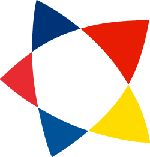Video recordings can be found on the individual pages for each talk. Just scroll down on the list of Nordita events.
The objective of the School is to provide training for PhD students working in magnetohydrodynamics in general, and in astrophysical dynamos, the geodynamo, and laboratory dynamos in particular. A proper understanding of dynamos has become mandatory in many fields of research. Solar activity with its 11 year cycle is just one example where we are still lacking a theoretically consistent model in spite of the urgent need to predict the intensity of the next cycle. The latter is particularly critical is estimating the life time of artificial satellites in Earth orbit and hence the need for costly service missions. In the last 10 years major theoretical advances have led to a much deeper understanding of dynamos at large magnetic Reynolds numbers. In addition, three different laboratory experiments have now been successful in displaying dynamo action, broadening the range of phenomena that need to be understood theoretically.
Prerequisites
The students are expected to have basic training in theoretical physics including electrodynamics and vector calculus.
Confirmed teachers
- Piyali Chatterjee (Nordita): Solar dynamo cycle predictions
- Cary Forest (Wisconsin): The Wisconsin dynamo experiments and simulations
- Chris Jones (Leeds): Challenges in simulating the geodynamo
- Maarit Korpi (Helsinki): Simulations of dynamos in compressible flows
- Jean-François Pinton (Lyon): The Cadarache dynamo experiment
- Karl-Heinz Rädler (Potsdam): Mean-field dynamo theory
- Anvar Shukurov (Newcastle): Dynamos on galactic scales
- Kandaswamy Subramanian (Pune): Magnetic helicity evolution in dynamos
Special Lecture
- Agris Gailitis (Riga): Liquid sodium experiments
http://www.nordita.org/winterschool2010
Download poster:
http://www.nordita.org/~brandenb/docs/WinterSchool2010.pdf
Organized by:
Nordita and the ERC-supported AstroDyn project.
Supported by:

Preliminary time table: There will be three 90 min regular lectures each day. On Friday Agris Gailitis will deliver a special lecture on the Riga liquid sodium dynamo experiment and future prospects. At the end of each day there will be an opportunity for a seminar or two short talks, for example by some of the students or by guests and other scientists in the AstroDyn project. Also, have scheduled 3 informal group sessions (Grp1-3), where groups of ~5 students talk with each teacher in turn for about 1/2 hour.
The official list of lectures is on the Agenda page. - List of Lectures in temporal order
- Additional material

